
Filter News
Area of Research
- Advanced Manufacturing (1)
- Biology and Environment (18)
- Building Technologies (1)
- Clean Energy (58)
- Climate and Environmental Systems (1)
- Computational Biology (1)
- Computational Engineering (2)
- Computer Science (10)
- Fusion and Fission (9)
- Fusion Energy (7)
- Isotopes (3)
- Materials (33)
- Materials for Computing (5)
- Mathematics (1)
- National Security (7)
- Neutron Science (28)
- Nuclear Science and Technology (14)
- Nuclear Systems Modeling, Simulation and Validation (1)
- Quantum information Science (3)
- Supercomputing (21)
- Transportation Systems (2)
News Type
News Topics
- (-) Big Data (22)
- (-) Biomedical (19)
- (-) Computer Science (52)
- (-) Decarbonization (23)
- (-) Fusion (16)
- (-) Mathematics (5)
- (-) Nanotechnology (18)
- (-) Neutron Science (35)
- (-) Nuclear Energy (33)
- (-) Transportation (47)
- 3-D Printing/Advanced Manufacturing (43)
- Advanced Reactors (15)
- Artificial Intelligence (17)
- Bioenergy (32)
- Biology (38)
- Biotechnology (7)
- Buildings (28)
- Chemical Sciences (18)
- Clean Water (19)
- Climate Change (37)
- Composites (11)
- Coronavirus (17)
- Critical Materials (13)
- Cybersecurity (9)
- Energy Storage (45)
- Environment (80)
- Exascale Computing (4)
- Frontier (4)
- Grid (27)
- High-Performance Computing (20)
- Hydropower (8)
- Irradiation (2)
- Isotopes (15)
- ITER (4)
- Machine Learning (15)
- Materials (42)
- Materials Science (45)
- Mercury (7)
- Microscopy (20)
- Molten Salt (5)
- National Security (18)
- Net Zero (3)
- Partnerships (1)
- Physics (20)
- Polymers (14)
- Quantum Computing (5)
- Quantum Science (12)
- Security (7)
- Simulation (11)
- Space Exploration (10)
- Statistics (1)
- Summit (8)
- Sustainable Energy (57)
Media Contacts
Oak Ridge National Laboratory scientists led the development of a supply chain model revealing the optimal places to site farms, biorefineries, pipelines and other infrastructure for sustainable aviation fuel production.
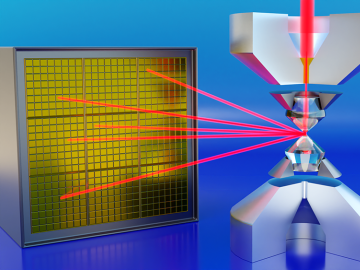
For decades, scientists sought a way to apply the outstanding analytical capabilities of neutrons to materials under pressures approaching those surrounding the Earth’s core.
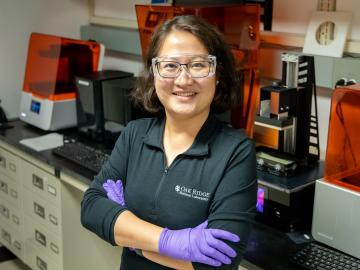
Growing up in China, Yue Yuan stood beneath the world’s largest hydroelectric dam, built to harness the world’s third-longest river. Her father brought her to Three Gorges Dam every year as it was being constructed across the Yangtze River so she could witness its progress.
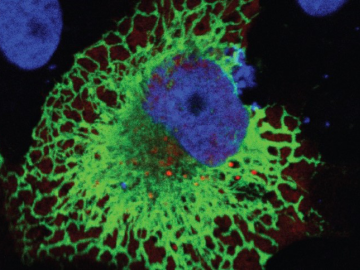
Oak Ridge National Laboratory scientists exploring bioenergy plant genetics have made a surprising discovery: a protein domain that could lead to new COVID-19 treatments.
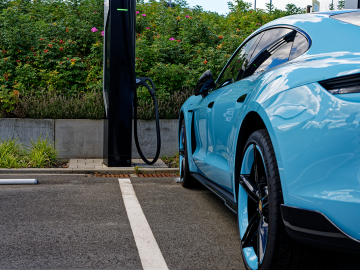
Oak Ridge National Laboratory researchers have developed an online resource to help consumers understand the electric vehicle tax credits available through the Inflation Reduction Act.
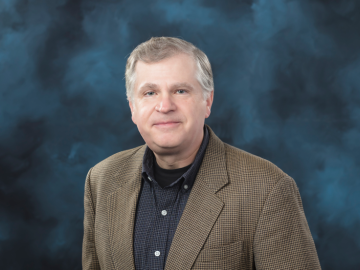
When virtually unlimited energy from fusion becomes a reality on Earth, Phil Snyder and his team will have had a hand in making it happen.
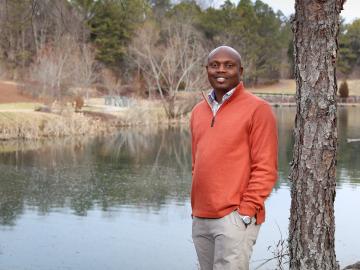
Stephen Dahunsi’s desire to see more countries safely deploy nuclear energy is personal. Growing up in Nigeria, he routinely witnessed prolonged electricity blackouts as a result of unreliable energy supplies. It’s a problem he hopes future generations won’t have to experience.
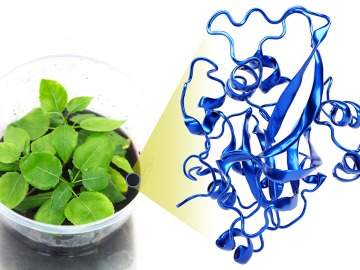
ORNL researchers have identified specific proteins and amino acids that could control bioenergy plants’ ability to identify beneficial microbes that can enhance plant growth and storage of carbon in soils.
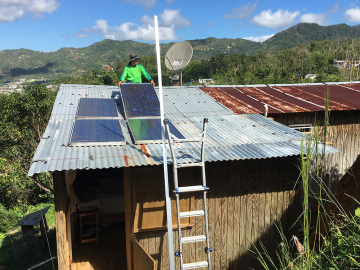
ORNL researchers Ben Ollis and Max Ferrari will be in Adjuntas to join the March 18 festivities but also to hammer out more technical details of their contribution to the project: making the microgrids even more reliable.
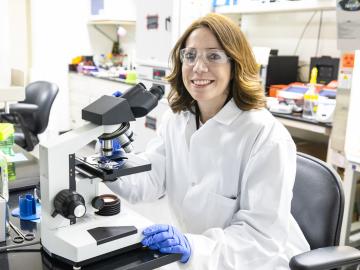
Joanna Tannous has found the perfect organism to study to satisfy her deeply curious nature, her skills in biochemistry and genetics, and a drive to create solutions for a better world. The organism is a poorly understood life form that greatly influences its environment and is unique enough to deserve its own biological kingdom: fungi.


